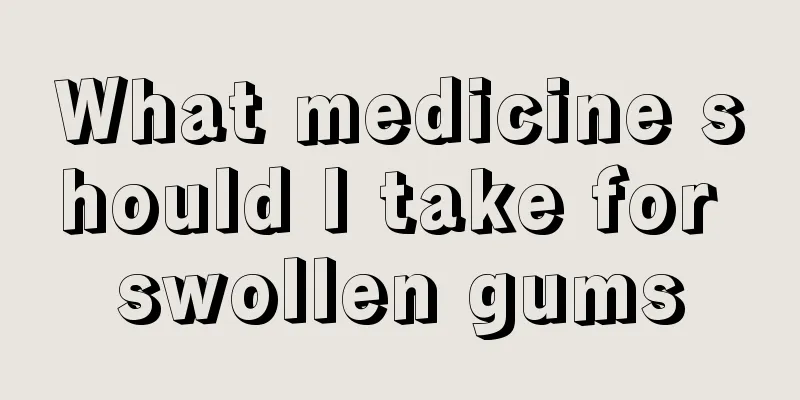What medicine should I take for swollen gums

|
Swollen gums are the most common gum disease we encounter. The emergence of this situation has a lot to do with our diet. Of course, some diseases can also cause swollen gums. Generally speaking, if the condition is not serious, you can treat it with some anti-inflammatory drugs. However, if the gums are severely swollen and accompanied by severe toothache, it is recommended that you go to the hospital for treatment. One is acute gingivitis caused by upper respiratory tract infection (cold or fever). Symptoms usually include sore throat, thick yellow tongue coating, and dry and bitter mouth. For common gum inflammation like this, you can just take some common anti-inflammatory drugs, such as metronidazole tablets and tinidazole tablets. The other is that you have tooth decay Acute pulpitis complicated by acute gingivitis due to tooth decay. If the gum swelling and pain is caused by tooth decay, there are several solutions and prevention methods for reference. First, brush your teeth with warm water and rinse your mouth with warm tea: Because the pulp nerve is sensitive to temperature, especially for teeth with worn teeth and exposed dentin, cold stimulation can cause toothache, and warm water is a natural protective agent for teeth, which can prevent and treat allergic toothache; tea contains fluoride, and gargling with warm tea can protect teeth, prevent caries and treat toothache. But it only treats the symptoms and not the root cause. Second, it is better to eat warm food and avoid eating too sour or sweet food. Because teeth metabolize best in an oral temperature of 35℃-36℃ and a weakly acidic environment with a pH of around 6.8, eating food that is too cold or too hot with a large temperature difference, or eating irritating food that is too sour or too sweet, will cause toothache. This method can temporarily relieve pain. Third, before brushing your teeth in the morning and evening, dip the toothbrush in water and shake it dry, then apply an appropriate amount of tooth powder and Yuchisan, brush your teeth for 2-3 minutes, and then rinse your mouth with clean water. In addition, in view of the causes of swollen and painful gums mentioned above, it is recommended that you pay attention to your diet and not eat too much food that is easy to cause inflammation (such as puffed food, fried spicy food); the hot summer, poor sleep, and frequent access to air-conditioned rooms are all high-risk factors for upper respiratory tract infections. At this time, you should pay attention to timely self-adjustment of clothing and pay attention to regular work and rest to avoid upper respiratory tract infections. Only by doing this can you effectively prevent the recurrence of swollen and painful gums. |
<<: What does a mole on the corner of the mouth mean
>>: Why does the amniotic fluid decrease
Recommend
Seven tests can help diagnose thyroid cancer
After being diagnosed with thyroid cancer, many p...
Which department should I go to for headache and dizziness
Headache and dizziness are problems that many peo...
Why is the area itchy due to moxibustion?
People may experience various reactions when doin...
What are the hazards of formaldehyde to human body
The harm of formaldehyde to the human body may ca...
How long can you live with lung cancer bone metastasis
The early symptoms of lung cancer are not very ob...
Why do fried dough sticks become hard when cold?
The fried dough sticks we usually buy are crispy ...
How much is the cost of late radiotherapy for skin cancer
I don’t know why, but recently my skin suddenly g...
What to do if your toes are on top of your sneakers
Nowadays, although leather shoes are more beautif...
Why do my fingers feel numb when I wake up in the morning?
Many diseases are hidden and difficult to detect....
I feel pain in my buttocks when I sleep lying down
Many people feel pain in the bones in their butto...
What to do if there is a bad taste in your mouth
Many people experience a bad taste in their mouth...
What is the cause of oral herpes
The phenomenon of angular herpes is quite common ...
How many days is the best time for a couple to calm down after a quarrel?
I believe that falling in love is something that ...
Diet care should be combined during the treatment of brain cancer
Diet is an indispensable part of brain cancer tre...
What is the current chance of curing fibroids?
For each of us, once we suffer from fibroid disea...









